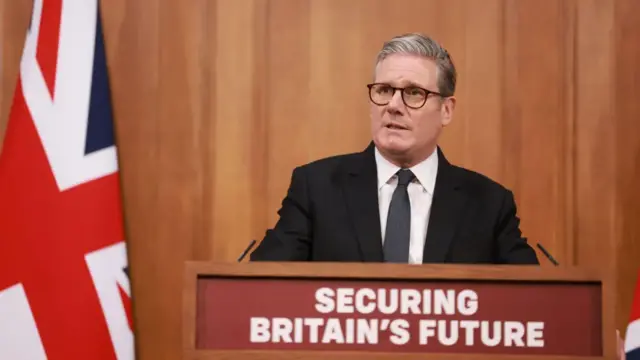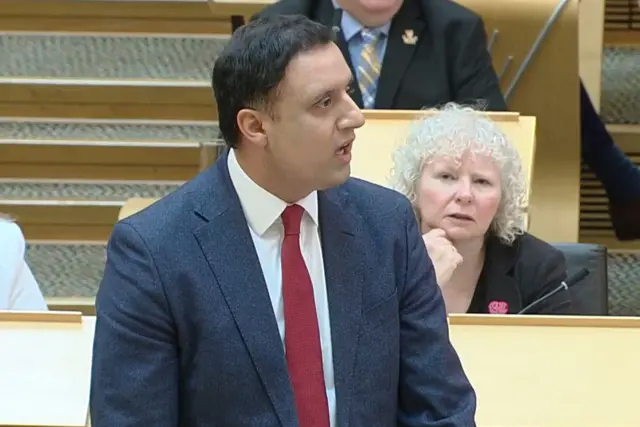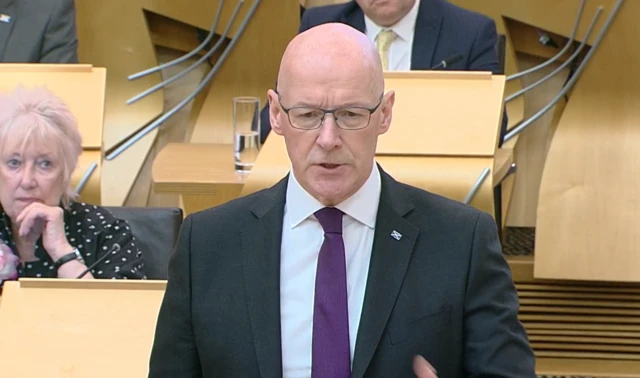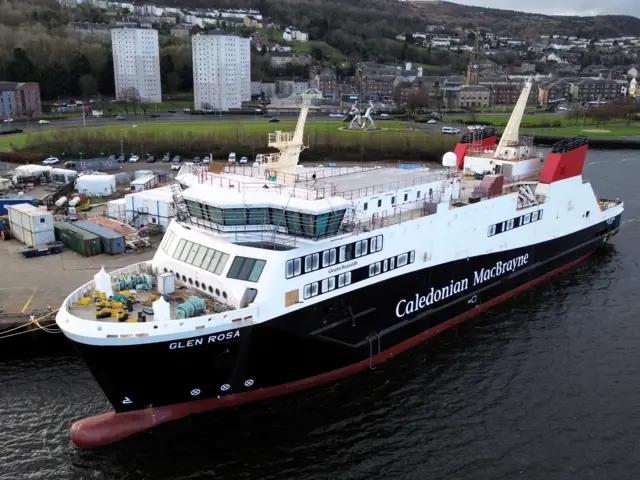FMQs: The headlinespublished at 13:06 BST 15 May
If you're just joining us here are the headlines from this week's FMQs.
- Both Russell Findlay and Anas Sarwar brought up on the latest delay and increase in costs of the MV Glen Rosa
- Findlay asked why is completion of the ferry taking so long and why had no SNP minister resigned over the scandal
- The Scottish Tory leader also asked what the final cost to the taxpayer would be
- The first minister defended his government's record on ferries pointing out the spend on ferries had increased five fold since 2007
- "So much for steadying the ship" quipped Anas Sarwar picking up on the same issue
- The Scottish Labour leader highlighted £500m spent by CalMac on ferry repairs
- Again the FM defended his position by pointing out the impact of the weather on cancellations
- Alex Cole-Hamilton went on a different tack and focused on the "crisis in social care"
- The FM agreed with much that the Scottish Lib Dem leader had said and instead took fire at Sir Keir Starmer's immigration announcement which he said would be "catastrophic" for the care sector in Scotland
That's all from the live page team this lunchtime. Calum Watson was the editor. Megan Bonar and Craig Hutchison were the writers.








